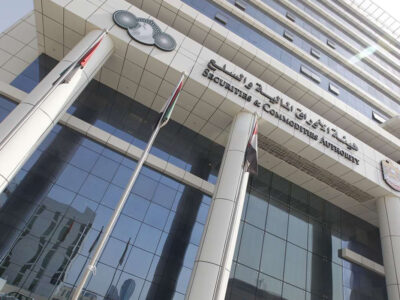The UAE has embraced the new way of working following the impact of the global coronavirus pandemic, making it one of the world’s most attractive destinations for expats, according to a new report.
According to the Expat Insider 2021 survey by InterNations, the UAE has been ranked second globally, behind the United States, for its adoption of the concept of “new work”.
Respondents were also asked to rate how important the concept of new work, which describes the new way of working in the global and digital age, is in the local business culture.
Expats in the UAE said they feel that the local work culture embraces new ways of working, which include, for example, more flexibility, a focus on work-life balance, and digitalisation.
The top 10 countries where expats rate the importance of new work in the local business culture the highest are the US, the UAE, Finland, Estonia, the Netherlands, Bahrain, Australia, Canada, New Zealand, and Sweden.
In contrast, new work was said to have the least importance in Japan, Egypt and South Korea.
The Expat Insider 2021 survey showed that 47 percent of working expats name their career as the most important reason for relocating to another country.
It also revealed that expats working abroad are on average 43.1 years old, and the gender ratio is a fairly even split between male (53 percent) and female (46 percent) expats. Overall, they are well educated, with four in five working expats either holding a postgraduate degree/ master’s degree or a bachelor’s degree.
When it comes to their current employment situation, 30 percent are in a senior or specialist position, followed by lower/middle management (17 percent) and top managers/executives (13 percent).
More than one in five are self-employed or a freelancer, 9 percent are teachers or professors, and 7 percent each either work in entry-level jobs or have their own business.
The most common fields expats work in are education (12 percent), IT (11 percent), and finance (8 percent). Other frequently mentioned fields of work include manufacturing and engineering (7 percent), healthcare (6 percent) and advertising, marketing & communication (5 percent).
About one-third of working expats have a gross yearly income ranging from $50,000-100,000 while four in nine make $50,000 or less and 23 percent make more than $100,000.
While the vast majority of expats works full time (82 percent), the share has slightly decreased by four percent since 2015.
Close to three in five working expats (58 percent) said that factors like autonomy, freedom, creativity, personal development, and self-fulfillment are important in the business culture of their host country.
One aspect of new work is already an everyday occurrence for many working expats – close to four in five (78 percent) are able to work remotely in 2021.
However, while 62 percent said that they can work remotely, 16 percent added that they can work remotely but usually prefer not to. Another 16 percent said they are unable to work remotely due to the nature of their job, and only 6 percent said they cannot work remotely because their employer does not allow it.
According to the survey, the Covid-19 pandemic had an effect on the remote work policies for expat employees – nearly three in ten are now able to work remotely more often than before, while another 20 percent say that remote work has been newly introduced and is here to stay for them.
When asked what they like best about their current job, working expats most frequently mention the opportunity to work remotely (32 percent), a good work-life balance (32 percent), and flexible working hours (29 percent).
“What working expats enjoy about the job they have is not necessarily what they envision for their future career. Businesses all around the world will have to offer more within the context of new work, such as room for creativity. But this is not everything expats ask for,” said Malte Zeeck, InterNations founder and co-CEO.
“Despite a growing desire for self-fulfillment and personal development, hard factors such as a good salary remain extremely important for expats in a business context.”
How the UAE is continuing to attract global talent
- Earlier this year, the UAE approved amendments to its nationality laws to attract more foreign talent. Under the directives of UAE President, Sheikh Mohammed bin Rashid Al Maktoum, Prime Minister and Vice President of the UAE and Dubai Ruler, approved the changes to the Executive Regulation of the Federal Law concerning Nationality allowing investors, professionals, special talents and their families to acquire Emirati nationality under certain conditions.
- The legislation change is one of a number of measures recently announced by the UAE as its economy looks to rebound from the impact of the global coronavirus pandemic.
- The UAE abolished the need for companies to have Emirati shareholders late last year, in a major shake-up of foreign ownership laws aimed at attracting investment into an economy reeling from the coronavirus and a decline in oil prices.
- In September 2020, Dubai launched a retirement programme for resident expatriates and foreigners over the age of 55. Retire in Dubai, the first of its kind in the region, is being spearheaded by Dubai Tourism in collaboration with the General Directorate of Residency and Foreigners Affairs. Eligible applicants will be provided a retirement visa, renewable every five years. The retiree can choose between one of three financial requirements for eligibility: earning a monthly income of AED20,000 ($5,500); having savings of AED1 million ($275,000); or owning a property in Dubai worth AED2 million ($550,000).
- Dubai has also recently launched the Virtual Company Licence, which allows global businesses to access a regulated e-commerce platform populated by Dubai-based companies, while also exploring new markets and investment opportunities digitally. The initiative, which allows investors worldwide to do business in Dubai digitally without having to live in the emirate, is expected to attract more than 100,000 companies.







